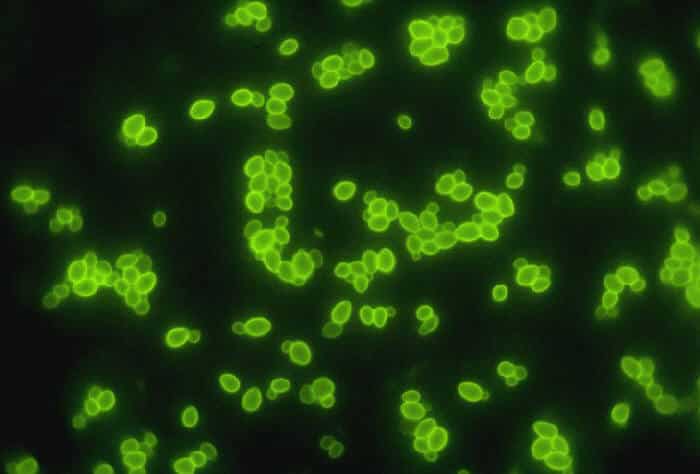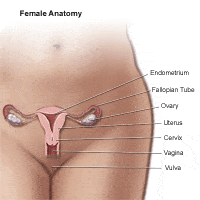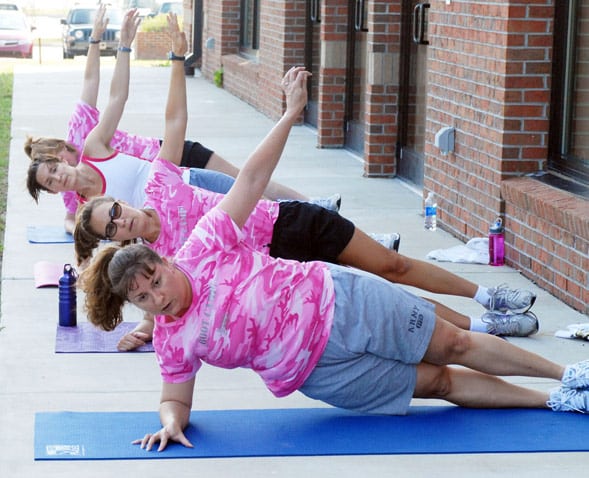
Vaginal yeast (aka bacterial vaginosis) infections are commonly called candidiasis and can strike women at any age, but is more prevalent past puberty. The infections are a fungus called candida and can exhibit various symptoms such as itching, general discomfort, swelling and irritation. Roughly 75% off all women will experience a yeast infection and of those that do, most will have reoccurring infections periodically.Yeast infections can be caused by antibiotics, diet, stress, irritation and a multitude of other factors including sexual contact. The candida bacteria found in all women is generally kept in check by the presence of a probiotic known as lactobacillus. Lactobacillus acts as the sentry to keep the candida from growing out of control. Alongside traditional methods to prevent or control yeast infections, many women are turning to probiotics as a way to support their immune system in gaining control.
 When there is a condition present that allows the candida to propagate beyond normal levels, the yeast infection goes into full swing and symptoms appear shortly thereafter. The symptoms usually start out mild and can later progress to become more severe if left untreated.Generally, most yeast infections are self-treated using over the counter products readily available at pharmacies and large retail chains. More severe cases lead to physician interaction where in some situations prescription medications are used to control the yeast growth.
When there is a condition present that allows the candida to propagate beyond normal levels, the yeast infection goes into full swing and symptoms appear shortly thereafter. The symptoms usually start out mild and can later progress to become more severe if left untreated.Generally, most yeast infections are self-treated using over the counter products readily available at pharmacies and large retail chains. More severe cases lead to physician interaction where in some situations prescription medications are used to control the yeast growth. 
As with many conditions that plague society, natural remedies run the full gamut ranging from simple exercises to holistic treatments and homemade brews that might include vinegar, tea tree oil, breathable underwear, yogurt, boric acid, cranberry juice, rosemary tea and other non-prescription based methods.
Preventing yeast infections can be difficult since each women has a multitude of variations that will determine what methods will best achieve prevention. Of course staying health, eating right and avoiding alcohol and smoking are great ways to properly set one’s self up for prevention support.
Other tips to consider include:
1) Avoid wearing tight pants, pantyhose and sung fitting clothing which can irritate or trap excessive heat and moisture.
2) Stay away from feminine products which contain deodorants
3) Keep dry. Excessive moisture can help grow yeast infections. Avoid spa’s and swimming if you are prone to yeast infections and have experienced them a short period after such events.
4) The best probiotic to consider for yeast infections should contain lactobacillus as it can help support your immune system which will attack the infection and regain control of the yeast growth.
5) Keep your blood sugar in check as yeast infections are more prevalent in diabetics.
6) Strive to stay healthy. No matter what your condition, it is usually possible to include some type of light exercise into your routine. Starting out very light and working your way up is how our bodies work. Always check with your physician before starting any exercise routine.
7) Be careful when using spermicides or birth control pills as these too can throw your balance out of whack.
Remember, what causes yeast infection in you, might not cause an infection in me. The next time you get a yeast infection, try to figure out what might have instigated it. Take a mental snapshot of your current wellbeing and try to remember what foods and activities you included in your lifestyle within a week of the infection. Were you on an antibiotic? Did you wear your favorite tight jeans out on the town? Did you go dancing, swimming or jogging? Self-monitoring can go a long way in helping to prevent the next bout.

Recent Comments